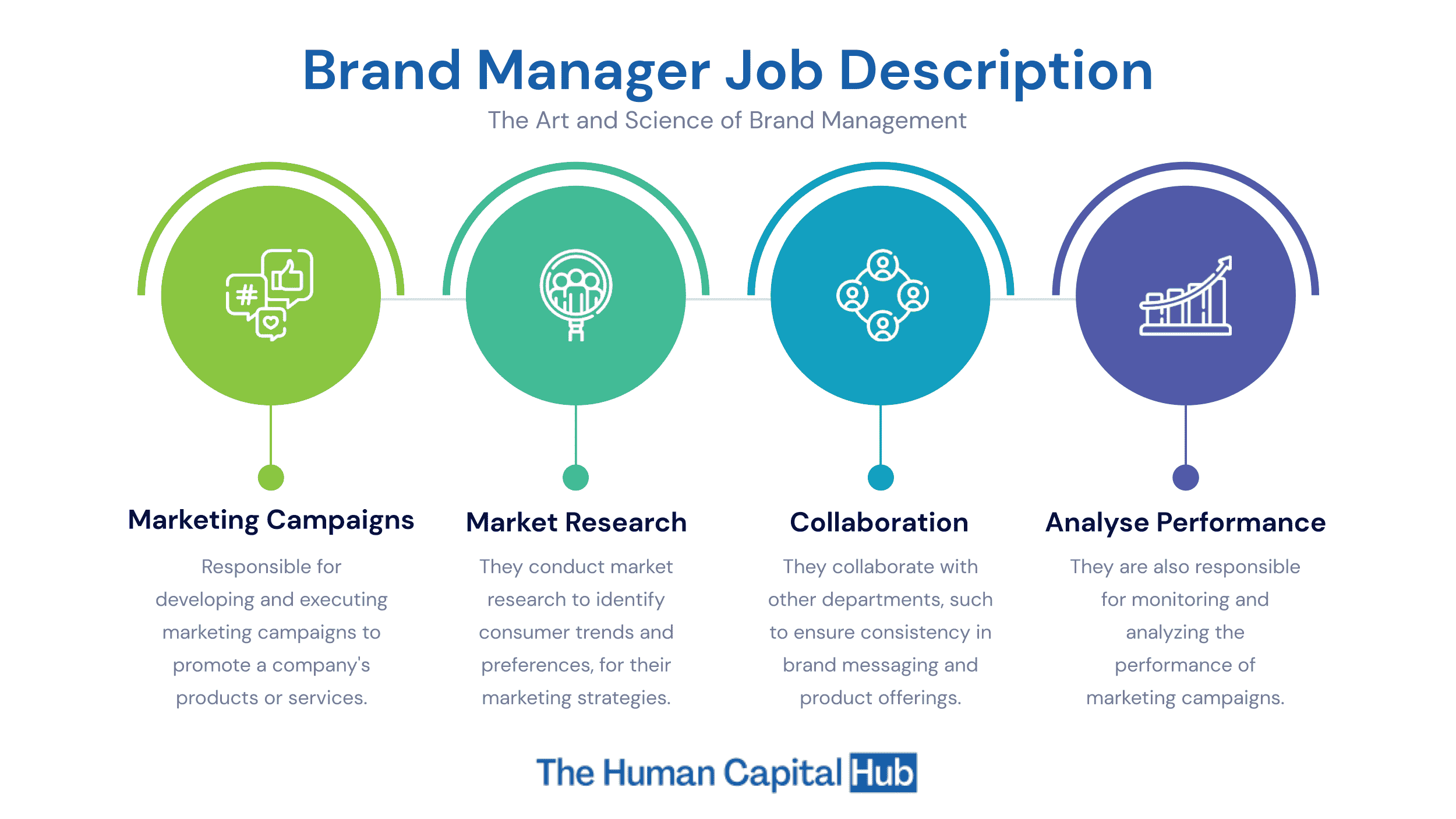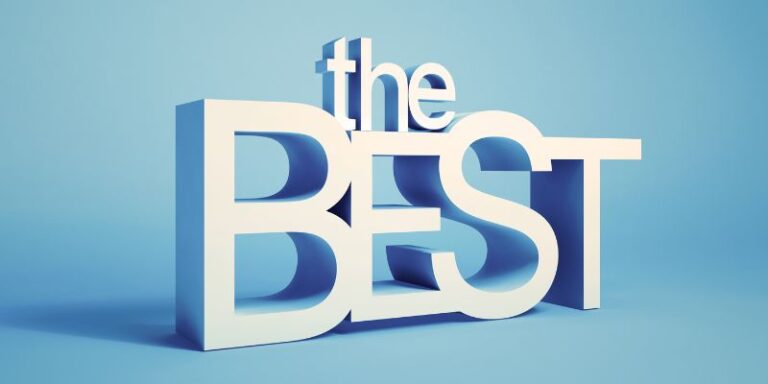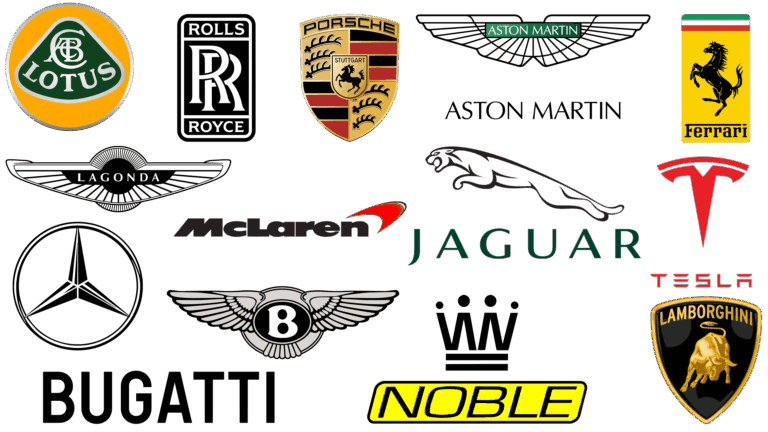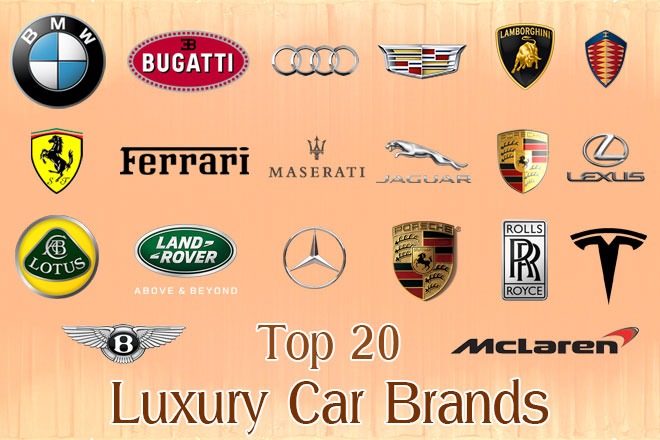Brand Manager Career Path: A Comprehensive Guide to Shaping Iconic Brands
Brand Manager Career Path: A Comprehensive Guide to Shaping Iconic Brands cars.truckstrend.com
In today’s hyper-competitive marketplace, brands are more than just products or services; they are promises, identities, and emotional connections. At the heart of cultivating these powerful entities lies the Brand Manager – a strategic maestro responsible for a brand’s health, growth, and overall market presence. The Brand Manager career path is a dynamic and rewarding journey, offering professionals the chance to shape consumer perceptions, drive business success, and leave an indelible mark on the commercial landscape.
This comprehensive guide delves deep into the Brand Manager career path, outlining the steps, skills, challenges, and opportunities that await aspiring and current professionals. Whether you’re just starting out or looking to ascend to the highest echelons of marketing leadership, understanding this trajectory is crucial for building a successful and impactful career.
Brand Manager Career Path: A Comprehensive Guide to Shaping Iconic Brands
Laying the Groundwork: Entry Points and Foundational Skills
The journey to becoming a Brand Manager typically begins with entry-level marketing roles, where aspiring professionals build a robust understanding of market dynamics, consumer behavior, and marketing fundamentals. These foundational years are critical for developing the diverse skill set required for brand leadership.
Typical Entry Roles:
- Marketing Coordinator/Assistant: Supports various marketing activities, including content creation, social media management, event coordination, and administrative tasks.
- Marketing Analyst: Focuses on data collection, analysis, and reporting to provide insights into market trends, campaign performance, and consumer preferences.
- Junior/Associate Brand Manager: Works under the guidance of a Brand Manager, assisting with specific brand initiatives, market research, and campaign execution.

Essential Foundational Skills:
- Market Research & Data Analysis: The ability to collect, interpret, and derive actionable insights from market data, consumer surveys, and sales figures. Proficiency in tools like Excel, Google Analytics, and various market research platforms is invaluable.
- Communication Skills: Exceptional written and verbal communication is paramount for crafting compelling brand messages, presenting strategies, and collaborating with cross-functional teams.
- Project Management: Brand initiatives often involve multiple moving parts. Strong organizational skills, attention to detail, and the ability to manage timelines and budgets are crucial.
- Creative Thinking: While often data-driven, brand management also requires an innovative mind to develop unique campaigns, product ideas, and problem-solving approaches.
- Digital Literacy: A solid understanding of digital marketing channels (SEO, SEM, social media, email marketing) and e-commerce platforms is non-negotiable in today’s landscape.

Educational Background:

Most Brand Managers hold a bachelor’s degree in Marketing, Business Administration, Communications, or a related field. Some may also start with degrees in psychology or sociology, leveraging their understanding of human behavior. Internships during college are highly recommended to gain practical experience and network within the industry.
Actionable Insight: Seek out internships or entry-level positions that expose you to diverse marketing functions. Volunteer for projects that involve data analysis, consumer insights, or campaign execution to build a well-rounded skill set. Develop a portfolio of your work, even if it’s from academic projects or volunteer roles.
The Heart of the Matter: Excelling as a Brand Manager
Once the foundational skills are honed, professionals typically transition into the Brand Manager role, which is the core of this career path. This position demands a blend of strategic vision, analytical prowess, and creative execution.
Core Responsibilities:
- Brand Strategy Development: Defining the brand’s vision, mission, values, target audience, and positioning in the market.
- P&L Management: Taking ownership of the brand’s profit and loss statement, including sales forecasting, budget allocation, and revenue generation.
- Product Lifecycle Management: Collaborating with R&D and product development teams on new product introductions, existing product enhancements, and eventual discontinuation.
- Marketing Campaign Development & Execution: Leading the creation and implementation of integrated marketing campaigns across various channels (digital, traditional, experiential).
- Market Intelligence: Continuously monitoring market trends, competitor activities, and consumer feedback to identify opportunities and threats.
- Cross-Functional Leadership: Collaborating extensively with sales, product development, finance, operations, legal, and external agencies to ensure brand alignment and successful execution.
Benefits of the Role:
- High Strategic Impact: Brand Managers have a direct influence on a company’s success and market perception.
- Diverse Skill Development: The role requires a broad range of skills, from analytical to creative, offering continuous learning.
- Visibility: Brand Managers often work closely with senior leadership, gaining exposure and recognition.
- Problem-Solving: Opportunities to tackle complex business challenges and innovate solutions.
Key Challenges:
- Managing Multiple Stakeholders: Balancing the needs and expectations of various internal departments and external partners.
- Budget Constraints: Operating effectively within often tight marketing budgets while maximizing ROI.
- Rapid Market Changes: Adapting quickly to evolving consumer preferences, technological advancements, and competitive landscapes.
- Demonstrating ROI: Clearly linking marketing efforts to tangible business results and financial performance.
Practical Advice: To excel as a Brand Manager, cultivate a "general manager" mindset. Understand not just marketing, but also finance, operations, and sales. Be data-driven in your decisions, but also trust your intuition and creative instincts. Proactively seek feedback and build strong, collaborative relationships across departments.
Ascending to Leadership: Senior & Group Brand Management and Beyond
For those with a strong track record, the Brand Manager career path offers significant upward mobility into senior leadership roles, culminating potentially in the Chief Marketing Officer (CMO) position. These roles involve increased strategic oversight, team leadership, and broader business responsibility.
Progression Stages:
- Senior Brand Manager: Manages a larger or more complex brand, a portfolio of brands, or a significant strategic initiative. Often mentors Associate Brand Managers.
- Group Brand Manager: Oversees a team of Brand Managers and Associate Brand Managers, responsible for an entire category or business unit’s brand portfolio. Focus shifts heavily to strategic planning, talent development, and P&L for multiple brands.
- Marketing Director/VP of Marketing: Leads an entire marketing department, defining the overarching marketing strategy for the company, managing large teams, and contributing to executive-level business decisions.
- Chief Marketing Officer (CMO): A C-suite executive responsible for all aspects of marketing strategy, brand management, and market share. The CMO drives the company’s growth strategy and brand reputation at the highest level.
Required Skills for Leadership Roles:
- Strategic Leadership: The ability to set long-term vision, anticipate market shifts, and guide the entire marketing function.
- Financial Acumen: Deeper understanding of corporate finance, investment analysis, and business unit profitability.
- Executive Presence: The confidence and ability to influence senior stakeholders, present compelling arguments, and represent the company externally.
- Talent Development: Building, mentoring, and leading high-performing marketing teams.
- Crisis Management: The ability to navigate brand crises and protect reputation in challenging situations.
Practical Advice: To advance, actively seek leadership opportunities within your current role. Mentor junior colleagues, volunteer to lead cross-functional task forces, and demonstrate your ability to think beyond your immediate brand responsibilities. Pursuing an MBA or executive education can significantly accelerate your progression to senior leadership roles.
Specializations and Divergent Paths
The Brand Manager career path isn’t strictly linear. There are various specializations and alternative routes that professionals can explore based on their interests and industry trends.
- Digital Brand Manager: Focuses specifically on a brand’s presence and strategy across digital channels, including social media, content marketing, SEO, and online advertising.
- Global Brand Manager: Manages brands across different international markets, requiring an understanding of cultural nuances, global marketing regulations, and diverse consumer behaviors.
- Product Marketing Manager: While overlapping, this role often focuses more intensely on the go-to-market strategy for specific products, including messaging, pricing, and sales enablement.
- Brand Consultant: Works with multiple clients, offering strategic advice on brand development, positioning, and marketing challenges.
- Entrepreneurship: Many Brand Managers leverage their strategic and marketing skills to launch their own brands or businesses.
How to Choose: Consider which aspects of brand management you find most engaging. Do you love data and technology? Digital might be for you. Are you fascinated by different cultures? Global brand management could be a fit. Research these roles, network with professionals in those areas, and consider certifications or courses to specialize.
Accelerating Your Journey: Strategies for Career Growth
Beyond simply performing well in your current role, there are proactive steps you can take to expedite your career progression in brand management.
- Continuous Learning: The marketing landscape is constantly evolving. Stay updated on the latest trends, technologies, and best practices. Consider certifications in areas like digital marketing, analytics, or specific software. An MBA, particularly from a top business school, can be a significant accelerator for mid-career professionals.
- Strategic Networking: Build genuine relationships with colleagues, industry peers, mentors, and recruiters. Attend industry events, join professional organizations, and leverage platforms like LinkedIn. Networking can open doors to new opportunities and provide invaluable insights.
- Seek Mentorship: Find experienced professionals who can offer guidance, share their knowledge, and provide constructive feedback. Being a mentor yourself can also hone your leadership and communication skills.
- Demonstrate Quantifiable Impact: Don’t just execute; measure your results. Frame your achievements in terms of business impact, such as increased market share, improved ROI, successful product launches, or cost savings.
- Cultivate Soft Skills: While technical skills are important, soft skills like negotiation, presentation, emotional intelligence, adaptability, and resilience become increasingly critical as you advance.
Navigating the Hurdles: Common Challenges and Solutions
The Brand Manager career path is rewarding but not without its obstacles. Being aware of common challenges and preparing solutions can help you navigate them effectively.
- Budget Limitations: Marketing budgets are often under scrutiny. Solution: Become adept at data-driven advocacy. Present compelling business cases backed by ROI projections and market insights. Prioritize initiatives with the highest potential impact.
- Intense Competition: The market is crowded, and standing out is tough. Solution: Focus on deep consumer understanding and differentiation. Invest in unique value propositions, innovate constantly, and foster strong brand loyalty.
- Internal Politics & Silos: Conflicting departmental goals can hinder brand initiatives. Solution: Build strong relationships across departments. Foster empathy and understanding for others’ priorities. Communicate proactively and transparently.
- Work-Life Balance: Brand management can be demanding, especially during campaign launches or crisis situations. Solution: Set clear boundaries, delegate effectively, and prioritize self-care. Learn to say no when necessary and advocate for adequate resources.
- Measuring Effectiveness: Attributing sales directly to marketing efforts can be challenging. Solution: Implement robust analytics frameworks, utilize attribution models, and continuously test and optimize campaigns. Focus on a mix of short-term and long-term metrics.
Brand Manager Career Progression & Salary Expectations
The following table provides a general overview of typical roles, experience levels, and average salary ranges within the Brand Manager career path. These figures can vary significantly based on industry, company size, location, and individual performance.
| Role | Experience Level | Typical Responsibilities | Avg. Salary Range (USD)* |
|---|---|---|---|
| Marketing Coordinator/Analyst | 0-2 years | Support functions, data entry, basic research, social media | $40,000 – $60,000 |
| Associate Brand Manager | 2-4 years | Assists Brand Manager, manages smaller projects, market analysis | $60,000 – $80,000 |
| Brand Manager | 4-7 years | Full brand P&L, strategy development, campaign leadership | $80,000 – $120,000 |
| Senior Brand Manager | 7-10 years | Manages complex brands/portfolios, mentors junior staff | $100,000 – $150,000 |
| Group Brand Manager | 10-15 years | Leads team of BMs, category strategy, portfolio management | $130,000 – $180,000 |
| Marketing Director/VP Marketing | 15+ years | Department leadership, overall marketing strategy, executive role | $160,000 – $250,000+ |
| Chief Marketing Officer (CMO) | 20+ years | C-suite executive, drives company growth & brand vision | $250,000 – $500,000+ |
Note: Salaries are highly dependent on factors like industry (e.g., tech vs. CPG), company size, geographic location (e.g., NYC vs. rural), and individual performance/negotiation skills. These figures are illustrative averages and can fluctuate.
Conclusion
The Brand Manager career path is a journey of continuous learning, strategic thinking, and creative execution. It offers the unique opportunity to shape consumer perceptions, drive business growth, and build iconic brands that resonate with millions. From mastering foundational marketing skills to leading multi-million-dollar portfolios, professionals in this field play a pivotal role in a company’s success. By embracing continuous learning, building strong networks, and demonstrating quantifiable impact, aspiring and current Brand Managers can navigate this exciting path, overcome challenges, and achieve remarkable career heights, ultimately leaving a lasting legacy in the world of commerce.
Frequently Asked Questions (FAQ) about the Brand Manager Career Path
1. What education do I need to become a Brand Manager?
A bachelor’s degree in Marketing, Business Administration, Communications, or a related field is typically required. Some professionals may also start with degrees in psychology or sociology. For senior roles, an MBA is often highly valued or preferred.
2. Is an MBA necessary to become a Brand Manager?
While not strictly necessary for entry-level or even Brand Manager roles, an MBA can significantly accelerate your career progression, especially if you aim for Senior Brand Manager, Group Brand Manager, or Director-level positions. It provides a broader business acumen, strategic thinking skills, and networking opportunities.
3. What’s the difference between a Brand Manager and a Product Manager?
While both roles involve strategic oversight, a Brand Manager focuses on the brand’s overall identity, perception, and market positioning, ensuring consistency across all products and marketing efforts. A Product Manager is more focused on the development, launch, and lifecycle of a specific product, ensuring it meets customer needs and business goals. There is often significant overlap and collaboration between the two.
4. How important are soft skills in Brand Management?
Extremely important! While analytical and technical skills are crucial, soft skills like communication, negotiation, leadership, empathy, adaptability, and presentation skills become increasingly vital as you advance. You’ll need to influence stakeholders, lead teams, and build strong relationships.
5. Can I become a Brand Manager without a marketing degree?
Yes, it’s possible, especially if you have a strong analytical background (e.g., finance, economics) or a degree in a related field like communications. You would need to gain marketing-specific knowledge through internships, entry-level marketing roles, certifications, or self-study, and demonstrate a clear passion for brands and consumers.
6. What industries typically hire Brand Managers?
Brand Managers are found across a wide array of industries, including:
- Consumer Packaged Goods (CPG) – e.g., food, beverages, personal care
- Technology – e.g., software, hardware, SaaS
- Retail – e.g., fashion, electronics, home goods
- Automotive
- Pharmaceuticals
- Financial Services
- Hospitality & Travel
- Media & Entertainment
7. What’s the typical work-life balance like for a Brand Manager?
The work-life balance can vary significantly depending on the company, industry, and specific projects. During peak periods like new product launches or major campaign pushes, the hours can be long and demanding. However, many companies strive to maintain a reasonable balance. Strong organizational skills, effective delegation, and setting clear boundaries can help manage workload.






